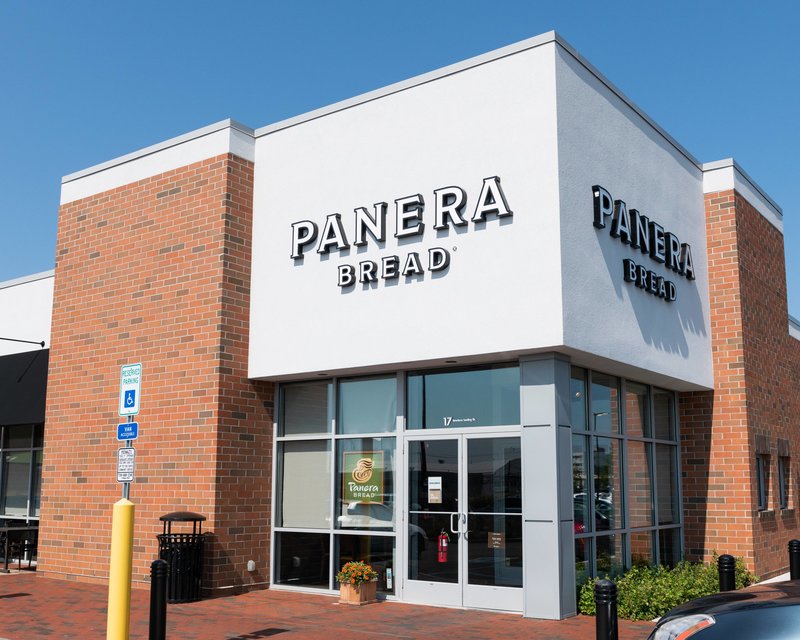
|
策略的變化是否意味著失??? 當(dāng)然不是。 通常,,這意味著成功的公式已經(jīng)發(fā)生變化,;競(jìng)爭(zhēng)格局已然升級(jí);公司需要獲取新的技能并尋找新的發(fā)展方向,。 優(yōu)秀的商業(yè)領(lǐng)導(dǎo)會(huì)不斷地評(píng)估周圍的環(huán)境,,并進(jìn)行相應(yīng)的調(diào)整,。良心資本家亦會(huì)如此。通過商業(yè)推動(dòng)人道主義事業(yè)進(jìn)程的案例比比皆是,,但實(shí)現(xiàn)這一目標(biāo)的方法必須隨著時(shí)間的推移而改變,,并緊隨資本主義市場(chǎng)變化的步伐。 有人將全食超市的利潤(rùn)下降或星巴克股價(jià)毫無(wú)起色作為良心資本主義難以在市場(chǎng)上獨(dú)善其身的證據(jù),,上述這一點(diǎn)便證明了他們其實(shí)是大錯(cuò)特錯(cuò),。 沒有人能否認(rèn),全食超市長(zhǎng)達(dá)數(shù)十年的成功讓百貨業(yè)發(fā)生了翻天覆地的變化,,同時(shí)也增強(qiáng)了人們對(duì)環(huán)保和食品問題的意識(shí),。星巴克依然采用的是前首席執(zhí)行官霍華德·舒爾茨所創(chuàng)建的模式,雖然它總是在一些社會(huì)問題上主動(dòng)發(fā)表自己的見解,,例如槍支控制、種族歧視等問題,,但依然是咖啡行業(yè)的領(lǐng)軍企業(yè),。如果我們作為人類,希望為所有人創(chuàng)造更加美好的生活,,那么企業(yè)是否有意愿去滿足其客戶和社會(huì)更廣泛的需求則顯得至關(guān)重要,。 那么到底什么才能算是良心資本主義?它是一種從人類當(dāng)前所處發(fā)展階段的角度出發(fā),,來思考資本主義和商業(yè)的一種方式,。它考慮了當(dāng)今這個(gè)世界的狀況,并意識(shí)到商業(yè)與生俱來的潛力——及其駕馭智力,、財(cái)務(wù)和人力資源的能力,,從而為世界帶來積極的影響。 良心資本主義家在經(jīng)營(yíng)公司時(shí)有著更高的目標(biāo)追求,。他們意識(shí)到,,如果創(chuàng)造一個(gè)所有利益相關(guān)方共贏的局面,包括客戶,、雇員,、供應(yīng)商和所在社區(qū),那么他們?yōu)楣蓶|創(chuàng)造利益的可能性就更大,。 毫無(wú)疑問,,我創(chuàng)建的公司Panera就是這樣一個(gè)例子。在近30年之中,,Panera已經(jīng)成為了擁有近2300家店面,、12萬(wàn)名加盟商的烘培店,其銷售額達(dá)60億美元,。Panera的成功歸功于:公司長(zhǎng)期以來利用價(jià)值觀來打造一家有價(jià)值的公司,。其目標(biāo)一直都是成為一家講誠(chéng)信,、令加盟商感到自豪、為客戶和團(tuán)隊(duì)成員的生活帶來積極影響的公司,。我們始終認(rèn)為,,我們對(duì)自身所在的這個(gè)世界照顧的越多,那么我們也就會(huì)獲得更大的商業(yè)成功,。 盡管Panera為世界帶來積極影響的目標(biāo)從未動(dòng)搖過,,但這些年來我們實(shí)現(xiàn)這一目標(biāo)的方式并非是一成不變的。我們必須圍繞如何分配公司的精力和資源做出明智的決定,。有些時(shí)候,,我們的資金籌資人會(huì)資助學(xué)校和當(dāng)?shù)貓F(tuán)體,有時(shí)候會(huì)贊助癌癥研究,。與此同時(shí),,我們一直在關(guān)注食品安全問題,而且每年向3500多家非盈利機(jī)構(gòu)和收容所捐贈(zèng)1億美元的食物,。 為了支持這一共同的目標(biāo),,我們將提升公司對(duì)客戶和潛在加盟商的吸引力。但需要強(qiáng)調(diào)的是,,我們?cè)陂_展這些舉措之前都會(huì)認(rèn)真權(quán)衡,,尤其是那些有爭(zhēng)議的舉措。 令我們感到高興的是,,越來越多的公司都在效仿這一做法,,以良心資本家的姿態(tài)來解決重大社會(huì)問題,而且一旦他們發(fā)現(xiàn)更好的行事方式時(shí),,他們便會(huì)調(diào)整其方法,。在兩名黑人于星巴克費(fèi)城店遭到逮捕之后,星巴克暫停了其業(yè)務(wù)經(jīng)營(yíng),,并對(duì)所有的員工進(jìn)行反種族歧視培訓(xùn),。這個(gè)培訓(xùn)完美無(wú)瑕嗎?不是,。能夠解決社會(huì)上所有的種族問題嗎,?不能。星巴克所邁出的這一步是正確的嗎,?是的,。 更多的企業(yè)應(yīng)該進(jìn)行類似的自我反思,并在應(yīng)對(duì)棘手問題方面發(fā)揮引領(lǐng)作用,。Dick’s Sporting Goods和沃爾瑪最近對(duì)槍支管制的立場(chǎng),,以及CVS在數(shù)年前下架所有煙草產(chǎn)品的決定便是良心資本主義的顯著進(jìn)步。 對(duì)于那些嘗試解決無(wú)人愿碰的棘手社會(huì)問題的企業(yè),,我們應(yīng)大加贊揚(yáng),。我們還應(yīng)稱贊那些按照時(shí)代和問題的變化而調(diào)整其策略的企業(yè),。這并不是失敗,而是良心資本主義——即有著良好的商業(yè)頭腦,,并懷揣著更高的目標(biāo)追求,。(財(cái)富中文網(wǎng)) 亞歷山大·邁可賓是Conscious Capitalism公司的首席執(zhí)行官。讓·沙伊克是Panera Bread的創(chuàng)始人兼董事長(zhǎng),,也是Act III Holdings的執(zhí)行合伙人,。 譯者:Pessy
審校:夏林 |
Does a change in strategy signify failure? Of course not. Usually, it means the equation for success has shifted; that the competitive landscape has evolved; that new skill sets and a new direction are needed. Good business leaders constantly evaluate what is happening around them and adjust accordingly. The same is true of conscious capitalists. The goal of elevating humanity through business is ever-present, but the means of achieving that goal must change over time as the capitalist marketplace evolves. That’s why those who point to Whole Foods’ decreasing profits or the flattening in Starbucks’ stock price as evidence that conscious capitalism can’t hold its own against market forces are plain wrong. No one can deny that Whole Foods’ decades-long success reinvented the grocery business while raising awareness of environmental and food issues. And Starbucks, in a tradition begun by former CEO Howard Schultz, remains a leader in the coffee category despite repeatedly putting a stake in the ground on social issues ranging from gun control to race relations. The willingness of businesses to address the broader needs of their customers and society is crucial if we, as human beings, want to realize a better world for us all. So what exactly is conscious capitalism? It’s a way of thinking about capitalism and business that reflects where we are in the human journey. It considers the state of our world today and recognizes the innate potential of business—with its ability to harness intellectual, financial, and human resources—to make a positive impact on the world. Conscious capitalists run their businesses with a higher purpose in mind. They recognize that in seeking winning solutions for all stakeholders—customers, employees, suppliers, and the communities where they operate—they are also more likely to benefit shareholders. That has certainly been the case at the company I founded, Panera. In nearly three decades, Panera has grown to nearly 2,300 bakery-cafes, 120,000 associates, and sales of $6 billion. Panera’s success came from a long-term commitment to building a company of value with values. The goal has always been to create a company of integrity, one associates were proud to be part of and one that made a difference in the lives of its guests and team members. We’ve always recognized that the more we give of ourselves in taking care of the world around us, the more we give to ourselves in terms of business success. But while Panera’s goal of making a difference has remained steadfast, the ways we’ve accomplished this have changed through the years. We’ve had to make conscious decisions about where to direct our energy and resources. Sometimes our fundraisers benefit schools and local groups, other times breast cancer research. Meanwhile, we are always focused on food insecurity and give $100 million in food donations annually to more than 3,500 nonprofits and homeless shelters. In fueling our collective purpose, we increase our appeal to customers and potential associates. But make no mistake, these actions are carefully weighed before they are taken—especially when they are controversial. We’re happy to see that more companies are following a similar path, waving the conscious capitalist flag in addressing weighty social issues. And they’re evolving their approach as they see ways they can do better. After an incident in which two black men were arrested at a Philadelphia store, Starbucks paused its business operations and had all of its employees go through racial bias training. Was the training perfect? No. Was it the end to all racial problems in society? No. But was it a step in the right direction? Yes. More businesses should be similarly self-reflective and take a leadership role in tackling tough issues. Dick’s Sporting Goods and Walmart’s recent stances on gun control and CVS’s decision a few years back to forgo selling all tobacco products are notable evolutions of conscious capitalism. Businesses should be applauded for attempting to tackle thorny social issues no one else will. They should also be applauded for evolving their strategies as times and issues change. That’s not failure; it’s conscious capitalism—good business sense with a higher purpose in mind. Alexander McCobin is the chief executive of Conscious Capitalism. Ron Shaich is the founder and chairman of Panera Bread and managing partner of Act III Holdings. |






